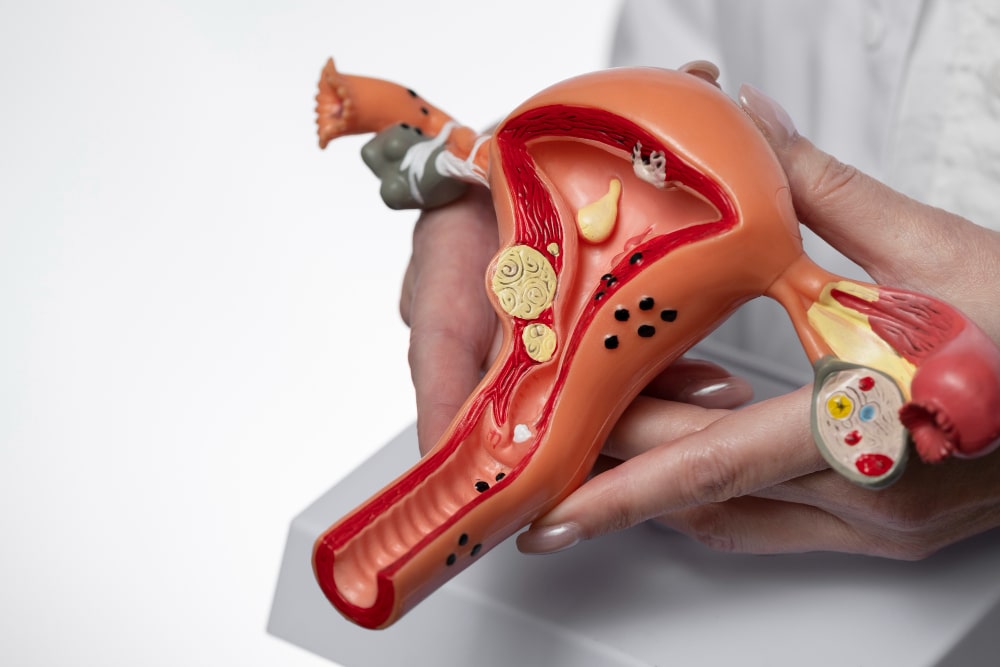An endometrioma, also known as a chocolate cyst, is a type of ovarian cyst that forms when endometrial tissue (the tissue that lines the uterus) grows outside of the uterus and attaches to the ovaries. This tissue can form a cyst filled with old blood, giving it a dark, chocolate-like appearance in imaging studies. Endometriomas can cause symptoms such as pelvic pain, infertility, dyspareunia, and irregular menstrual cycles.
The management of endometrioma, also known as a chocolate cyst, depends upon age, symptoms, and and desire for fertility, typically involves a combination of medical treatment and surgical intervention.
1. Medical treatment:
– Hormonal therapy: This may include oral contraceptives, progestins, or gonadotropin-releasing hormone (GnRH) agonists to help control the growth and symptoms of the endometrioma.
– Pain management: Over-the-counter pain medications or prescription painkillers may be used to manage the pain associated with the endometrioma.
– Anti-inflammatory medications: Nonsteroidal anti-inflammatory drugs (NSAIDs) may be prescribed to help reduce inflammation and pain.
2. Surgical intervention:
– Laparoscopic ovarian cystectomy: This minimally invasive procedure involves using a thin, lighted tube with a camera to remove the endometrioma or chocolate cyst while preserving the surrounding healthy tissue to maintain good fertility.
It is important to consult with a gynecologist in Indore to determine the most appropriate treatment plan based on as mentioned earlier individual’s symptoms, age, desire for fertility, and overall health. Regular monitoring and follow-up care may also be necessary to manage and monitor the endometrioma.

